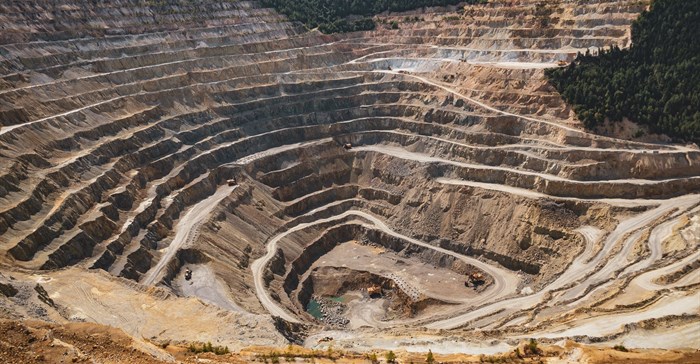
Climate change is affecting mining in Africa. Source: Vlad Chetan/Pexels
Tanzania’s head of state Samia Suluhu took to social media to convey her sadness and offer condolences.
“These brothers of ours were small miners in this area, earning a living for themselves, their families and contributing to the development of our nation,” read the statement.
“I send my condolences to the brothers, relatives and friends who lost their relatives in this accident. Our defence and security agencies, in cooperation with the regional leadership, are continuing efforts to find other bodies that are still stuck in the rubble.”
These 22 illegal miners join a growing list of similar mining accidents on the continent.
Earlier this month, 15 illegal miners were trapped after a ground collapse due to earth tremors at the Redwing mine, 270km east of the capital Harare in Zimbabwe.
Metallon Corporation, which owns Redwing Mine, confirmed the incident, and conducted a successful rescue mission.
Tannur Anders and Nelson Banya 9 Nov 2023 In Zambia during December, 11 informal miners were confirmed dead, and their bodies retrieved from an open-pit copper mine after landslides buried them in tunnels they were digging. Officials reported that as many as 38 miners may have been buried under the landslides at the mine near the city of Chingola, on Zambia’s copper belt, although they couldn’t specify an exact number.
Africa is affected by climate change
The Tanzania incident occurred during unseasonal rains experienced in the country. Tanzania’s Meteorological Agency (TMA) has highlighted the profound influence of climate change on the nation’s weather patterns, particularly its seasonal rains.
The agency cites prolonged dry spells in March and diminished rainfall across the northern coast and northeastern highlands as direct consequences of these climatic shifts.
Factors such as tropical cyclones in the Mozambique channel and abrupt Sea Surface Temperature (SST) variations along the East African coast and the eastern Indian Ocean have been identified as contributing to these disruptions.
The resultant below-average rainfall has significantly impeded the progression of Tanzania’s rainy seasons.
A continental crisis
Africa’s susceptibility to climate change extends across multiple sectors, including coastal zones, public health, energy, infrastructure, water resources, agriculture, and the availability of ecosystem goods and services.
Countries like Tanzania are at risk from extreme weather phenomena, which manifest as increased variability in rainfall and temperature patterns. Vigilant monitoring and strategic planning are imperative to navigate and mitigate the impacts of these climatic challenges.
Tanzania’s climate is marked by two principal rainy seasons: the ‘long rains’ from mid-March to May, characterised by intense afternoon downpours, particularly along the coastline and islands, and the ‘short rains’ or vuli, a milder period between October and December.
Additionally, the country experiences a dry spell from May to October and a brief dry season in January and February.






































